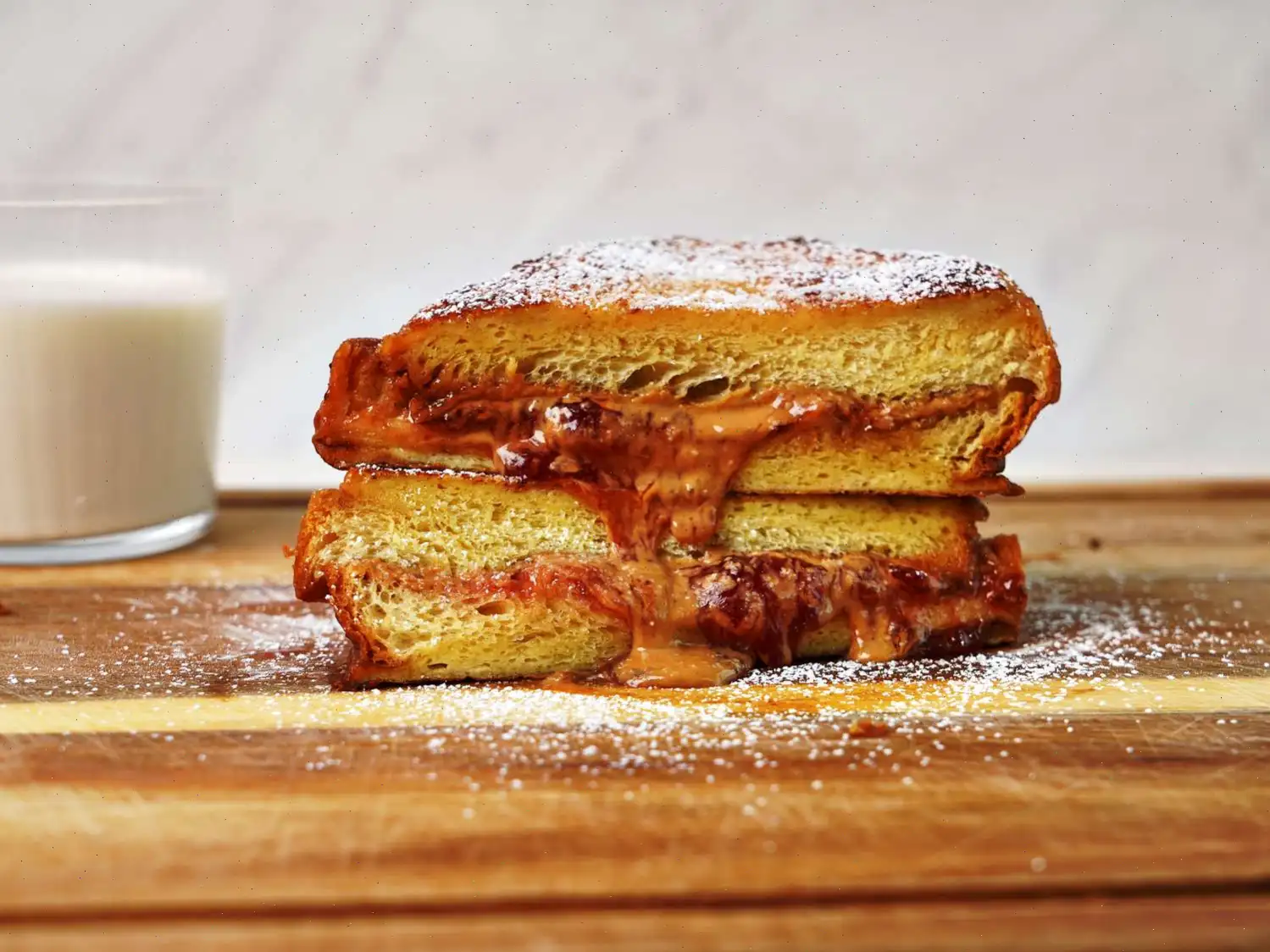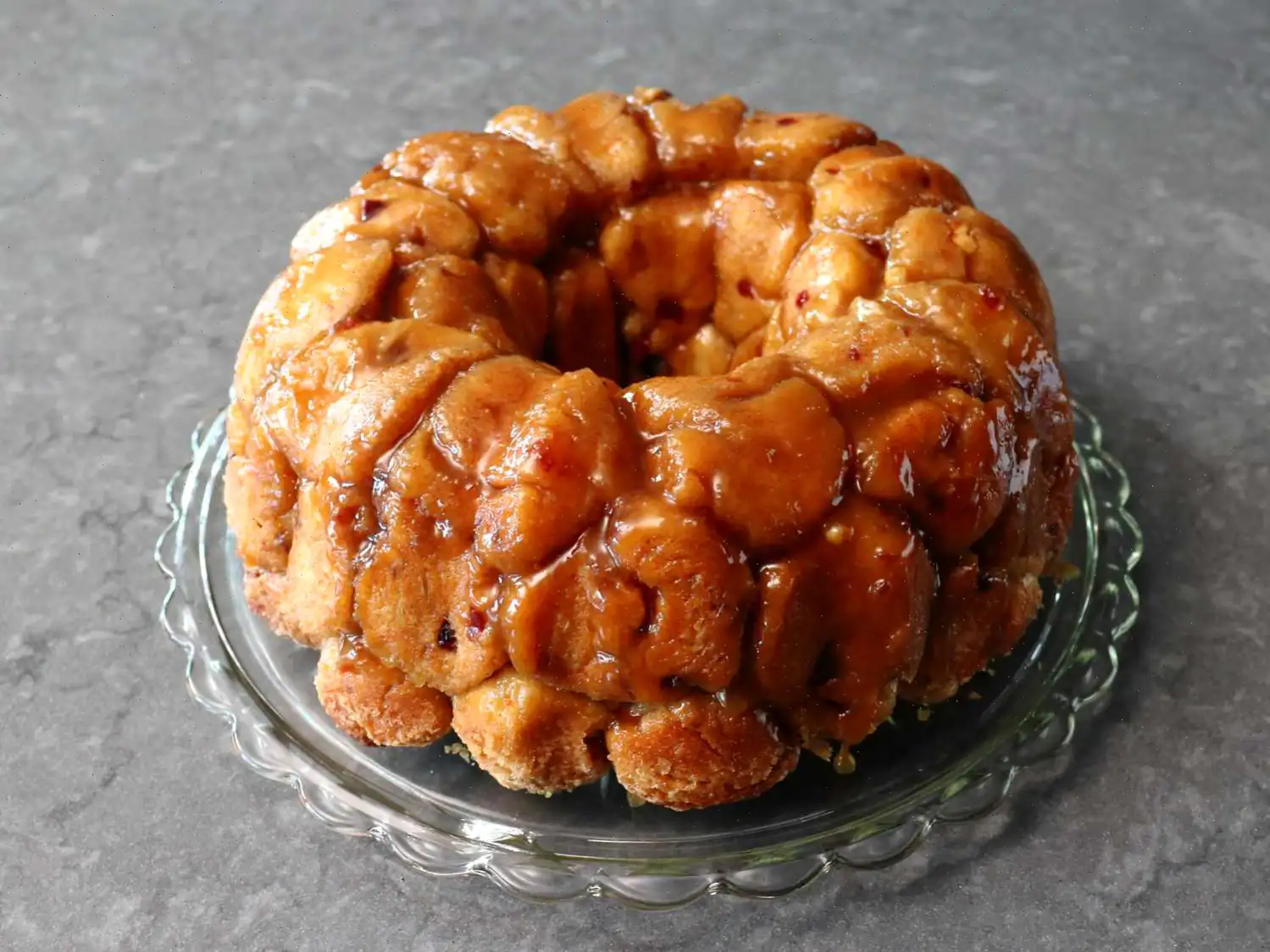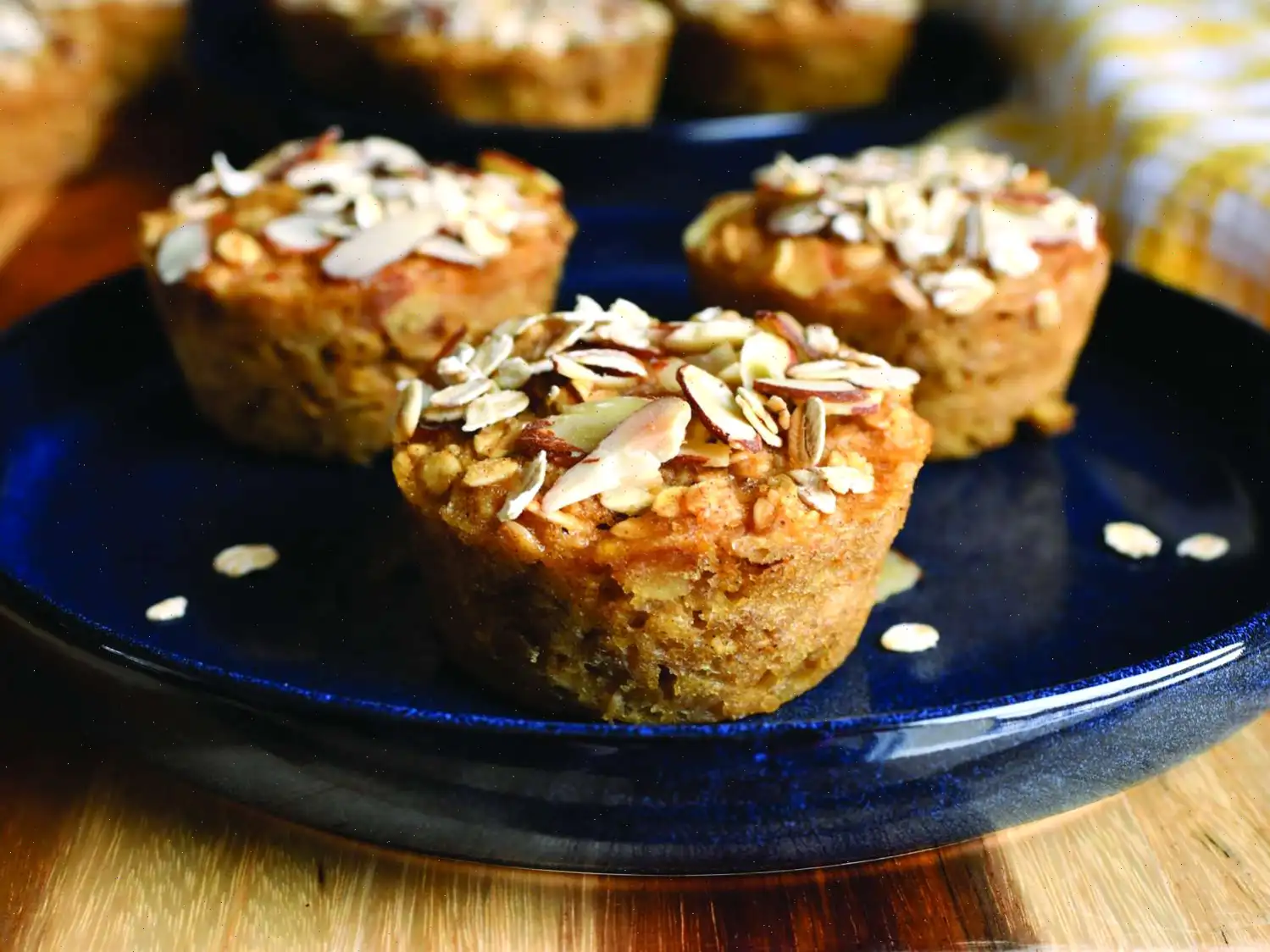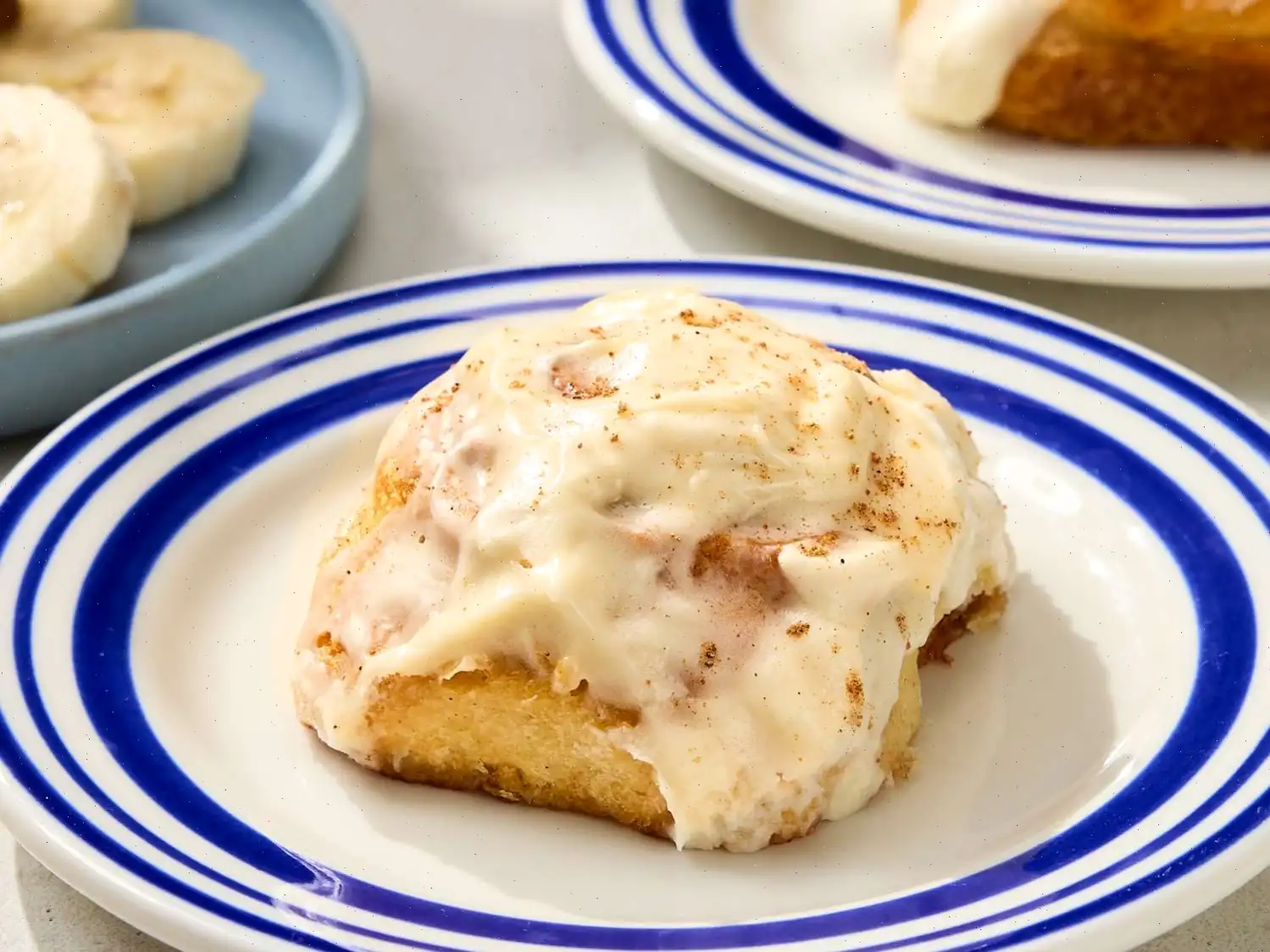
Receta de Tostadas Francesas Rellenas de PB&J
Comienza tu día de la mejor manera con esta deliciosa receta de tostadas francesas rellenas de mantequilla de maní y mermelada. Con un exterior crujiente y dorado y un relleno de mantequilla de maní y mermelada, este desayuno seguramente satisfará tus antojos. Sírvelo recién hecho con un poco de jarabe de arce por encima para el toque final. ¡Disfruta!
Transforma el clsico sndwich de mantequilla de cacahuate y mermelada en una exquisita versin de tostado francs. Con una superficie crujiente y un interior suave, es una opcin indulgente para el desayuno o el brunch que todos disfrutarn.
Ingredientes
- 8 rebanadas de brioche grueso, ideal para absorber la mezcla
- 1/4 taza de mantequilla de cacahuate cremosa
- 1/4 taza de mermelada de fruta de tu preferencia
- 3 huevos grandes
- 1/2 taza de leche entera
- 1/2 cucharadita de canela molida
- 1/4 taza de mantequilla sin sal, dividida para cocinar
- 1/2 cucharada de azcar glas, para decorar
Instrucciones
- Unta una generosa capa de mantequilla de cacahuate en el centro de cuatro rebanadas de pan, dejando un pequeo margen en los bordes.
- En las otras cuatro rebanadas, aplica la mermelada de la misma manera.
- Coloca una rebanada de pan con mantequilla de cacahuate sobre una rebanada con mermelada, formando as cuatro sndwiches.
- En un tazn poco profundo, bate los huevos con la leche y la canela hasta obtener una mezcla uniforme.
- Sumergir cuidadosamente cada sndwich en la mezcla de huevo, permitiendo que se empape un poco por ambos lados, sin llegar a empaparse completamente.
- Calienta una cucharada de mantequilla en una sartn a fuego medio. Cuando la mantequilla comience a hacer espuma, coloca un sndwich con cuidado en la sartn.
- Cocina cada sndwich durante aproximadamente 4 minutos por cada lado, o hasta que ambos lados estn dorados y ligeramente crujientes. Asegrate de que el interior se haya cocinado antes de voltear.
- Repite el proceso con el resto de los sndwiches, agregando ms mantequilla segn sea necesario para evitar que se peguen y mejorar el sabor.
- Cuando estn listos, espolvorea cada tostado francs con azcar glas. Sirve de inmediato para disfrutar de su sabor y calor al mximo.
Informacin Nutricional (por porcin)
- Caloras: 840
- Grasa total: 50g (64% VD)
- Grasa saturada: 25g (126% VD)
- Colesterol: 370mg (123% VD)
- Sodio: 816mg (35% VD)
- Carbohidratos: 79g (29% VD)
- Fibra diettica: 3g (12% VD)
- Azcares: 22g
- Protenas: 22g (44% VD)
- Calcio: 124mg (10% VD)
- Hierro: 5mg (27% VD)
- Potasio: 358mg (8% VD)
Los valores porcentuales diarios estn basados en una dieta de 2,000 caloras y pueden variar dependiendo de las necesidades individuales.
El "PB&J stuffed French toast" es una fusin divertida de dos platos icnicos de la gastronoma estadounidense: el clsico sndwich de mantequilla de man y mermelada (PB&J) y el tradicional "French toast" o tostada francesa. Aunque la tostada francesa tiene sus races en la Europa medieval como una forma de aprovechar el pan viejo, la combinacin de mantequilla de man y mermelada gan popularidad en los Estados Unidos a principios del siglo XX. La versin moderna rellena probablemente surgi en los aos 2000, como parte de la tendencia de los sndwiches gourmet de desayuno y las innovaciones del brunch, fusionando nostalgia con indulgencia.
Variaciones Regionales y Adaptaciones
Aunque el "PB&J stuffed French toast" es disfrutado en todo el pas, las variaciones regionales reflejan los gustos locales. En el sur, puede llevar conservas caseras y un brioche rico y mantecoso, acentuando el dulzor. En la costa oeste, puede incluir mantequilla de almendra o mermeladas de frutas orgnicas, adaptndose a comensales ms conscientes de la salud. En las ciudades del norte, a veces se sirve con un toque de jarabe de arce o espolvoreado con azcar glas, para realzar su aspecto de postre. Estas sutiles diferencias hacen que cada versin regional sea nica, mientras mantienen intacta la combinacin reconfortante de mantequilla de man, mermelada y pan empapado en huevo.
Cmo Se Diferencia del "French Toast" Tradicional
A diferencia del "French toast" tradicional, que es simplemente pan empapado en huevo y frito, este platillo incorpora un relleno dulce y cremoso, creando una estructura parecida a un sndwich. Se diferencia del "Monte Cristo", que usa jamn y queso y a menudo se fre profundamente, ofreciendo una alternativa salada. La versin PB&J pone nfasis en un equilibrio de sabores a nuez, fruta y riqueza, en lugar de un contraste dulce-salado. Tambin se distingue de los panqueques o waffles rellenos, ya que la capa de pan proporciona una textura ms firme y el sabor clsico de la crema de huevo de la tostada francesa.
Ocasiones Tpicas de Servicio
El "PB&J stuffed French toast" se sirve ms comnmente en el desayuno o brunch, especialmente en cafeteras y restaurantes que se especializan en platos matutinos indulgentes. Tambin aparece en los mens de los fines de semana en restaurantes familiares o como un antojo divertido para ocasiones especiales como cumpleaos o brunchs festivos. Algunas cafeteras y lugares de brunch modernos lo acompaan con frutas frescas, crema batida o un toque de chocolate, para realzar su presentacin, convirtindolo en una opcin tanto contundente como visualmente atractiva.
Datos Curiosos e Interesantes
- A pesar de su atractivo moderno, el "PB&J stuffed French toast" se inspira en alimentos que han sido bsicos durante ms de un siglo.
- El platillo es un favorito tanto entre nios como adultos, ya que transforma un simple sndwich en un clido y reconfortante postre.
- Algunos chefs experimentan con rellenos creativos como Nutella, crema de malvaviscos e incluso tocino, para darle un giro dulce y salado.
- Su apariencia ideal para Instagram, con costras doradas y azcar glas espolvoreado, ha ayudado a que se convierta en un favorito viral de brunch.
- Es fcil de adaptar para personas con restricciones dietticas, usando pan sin gluten o mantequillas de nuez alternativas, lo que lo hace verstil para los comensales modernos.
Preguntas frecuentes sobre Receta de Tostadas Francesas Rellenas de PB&J
Compartir
Comentarios
Jason Taylor
07/24/2024 09:06:51 AM
Esta fue mi primera vez preparando tostadas francesas de esta manera, ¡y dudo que vuelva a mi método anterior! ¡Estuvo fantástico! La única modificación que hice fue añadir una cucharadita de extracto de vainilla a la mezcla de huevo. Seguí todo lo demás exactamente como se indicaba.
Jason Flores
01/19/2023 05:14:10 AM
¡A toda mi familia le encantó este plato! Combinó perfectamente los sabores del desayuno y el almuerzo. Comencé haciendo las tostadas francesas y luego añadí la mantequilla de maní y la mermelada encima una vez listas, lo que lo hizo menos desordenado. ¡Qué receta tan fantástica!







